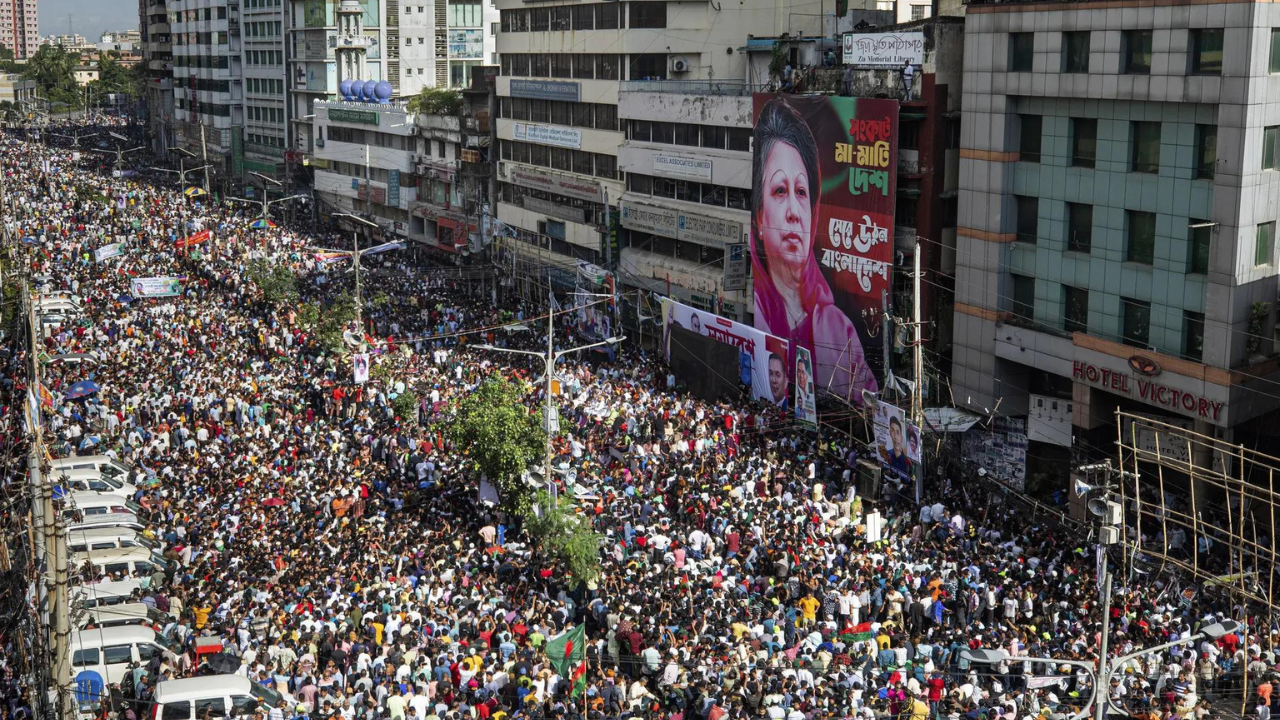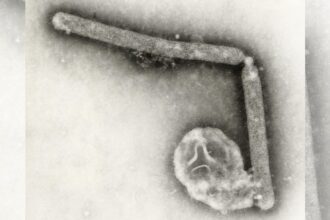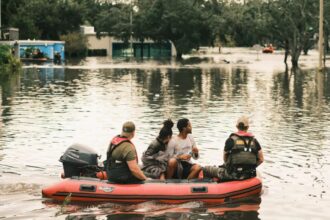The protests against the Sheikh Hasina-led government have claimed the lives of over 1,000 people, according to the interim government headed by Nobel laureate Muhammad Yunus.
Nurjahan Begum, the health adviser, shared this information during her visit to the Central Police Hospital in Rajarbagh, Dhaka. She also disclosed that more than 400 individuals, including students and members of the public, have lost their sight due to police action, with some losing vision in one eye and others in both eyes.
“So far 1,000 people have been killed and more than 400 students and members of the general public have lost their sight.Many have been blind in one eye, while others are blind in both,” Nurjahan was quoted as saying by the bdnews24.com news portal.
During her visit to the hospital, Nurjahan Begum interacted with injured police personnel and inquired about their condition. She mentioned that many officers had sustained injuries to their heads and legs.
Begum also noted that the interim government has taken responsibility for the families of those who have lost their lives and has pledged to provide free treatment to the injured.
Nurjahan Begum said, “Some have had severe leg injuries and even had to have their legs amputated. We are in discussions with various donor organizations and the World Bank to bring in a team of doctors from abroad for proper treatment. We are making efforts in this regard.”
The protests, which began as an anti-discrimination student movement against the controversial quota system in jobs, escalated into a violent confrontation between protesters and security forces.
The movement later evolved into an anti-government campaign, demanding the resignation of Prime Minister Sheikh Hasina. On August 5, Hasina stepped down and sought refuge in India, leading to the formation of an interim government headed by the 84-year-old Nobel laureate Muhammad Yunus as its chief adviser.
Yunus has committed to holding elections but highlighted that a “free, fair and participatory” election can only be conducted once the interim government has fulfilled its mandate to implement crucial reforms.
Nurjahan Begum, the health adviser, shared this information during her visit to the Central Police Hospital in Rajarbagh, Dhaka. She also disclosed that more than 400 individuals, including students and members of the public, have lost their sight due to police action, with some losing vision in one eye and others in both eyes.
“So far 1,000 people have been killed and more than 400 students and members of the general public have lost their sight.Many have been blind in one eye, while others are blind in both,” Nurjahan was quoted as saying by the bdnews24.com news portal.
During her visit to the hospital, Nurjahan Begum interacted with injured police personnel and inquired about their condition. She mentioned that many officers had sustained injuries to their heads and legs.
Begum also noted that the interim government has taken responsibility for the families of those who have lost their lives and has pledged to provide free treatment to the injured.
Nurjahan Begum said, “Some have had severe leg injuries and even had to have their legs amputated. We are in discussions with various donor organizations and the World Bank to bring in a team of doctors from abroad for proper treatment. We are making efforts in this regard.”
The protests, which began as an anti-discrimination student movement against the controversial quota system in jobs, escalated into a violent confrontation between protesters and security forces.
The movement later evolved into an anti-government campaign, demanding the resignation of Prime Minister Sheikh Hasina. On August 5, Hasina stepped down and sought refuge in India, leading to the formation of an interim government headed by the 84-year-old Nobel laureate Muhammad Yunus as its chief adviser.
Yunus has committed to holding elections but highlighted that a “free, fair and participatory” election can only be conducted once the interim government has fulfilled its mandate to implement crucial reforms.
Source : Times of India









